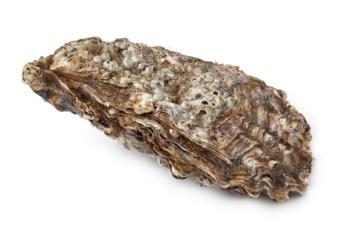
Pittcon 2025: Long Luo Discusses His Laboratory’s Tetrahedron Approach
At Pittcon 2025, Long Luo of the University of Utah sat down with LCGC International to discuss his laboratory's tetrahedron approach to their research.
At Pittcon 2025 in Boston, Massachusetts, Long Luo, an associate professor at the University of Utah, was recognized as this year’s recipient of the Pittcon Achievement Award.
During his award symposium on Monday, March 3rd, Luo delivered a talk titled, “Controlling Organic Reaction Selectivity by Alternating Current Electrolysis.” In his talk, Luo discussed recent advancements in electrochemical organic synthesis, which is a field that has gained renewed interest because of its potential for greener, more efficient pharmaceutical production (1). By using electrons from a power source to drive redox reactions, electrochemical synthesis reduces the need for chemical reagents, minimizes waste, and improves cost, safety, and sustainability (1). Traditionally, most methods rely on direct current (DC) electrolysis, where electric current flows in a single direction. However, alternating current (AC) electrolysis, which periodically reverses charge flow, remains largely unexplored (1). Luo’s presentation focused on how AC electrolysis can be used to control reaction timing and enhance selectivity by adjusting frequency. As a result, this can create a new approach that can help optimize synthetic processes (1).
This effort is one of the initiatives in the Luo Laboratory. Luo’s laboratory group focuses on tackling major challenges in environment, energy, and health by designing and synthesizing new functional materials and molecules while developing innovative analytical methods and tools (2). Their research is centered on electrochemistry, which connects four key areas: materials, sensing, catalysis, and organic synthesis (2). This approach, known as the “tetrahedron” approach, is the foundation of the Luo Laboratory’s research endeavors. By using this approach, Luo explains, he and his group achieve a thoughtful balance between fundamental research and practical problem-solving (2).
“Our tetrahedron approach encourages interdisciplinary research,” Luo said to LCGC International. “As I said earlier, my core strength is electrochemistry, but when I started my independent career, I really wanted to solve the big problems in environment, in health, and in energy, but very soon I realized my knowledge in electrochemistry sometimes is not enough to solve these problems, because it also requires knowledge in other disciplines of chemistry. So I branched out from my electrochemistry background to different fields in chemistry and started making connections among them, and eventually you get the tetrahedron structure.”
In our conversation with Luo, he elaborated on the tetrahedron approach, as well as discussed the challenges in adopting this approach consistently in the laboratory.
References
- Pittcon, Controlling Organic Reaction Selectivity by Alternating Current Electrolysis. Lab Science Events. Available at:
https://labscievents.pittcon.org/event/pittcon-2025/planning/UGxhbm5pbmdfMjQ1Mzc5Mg== (accessed 2025-03-04). - University of Utah, Our Research Projects. Utah.edu. Available at:
https://luo.chem.utah.edu/research/ (accessed 2025-03-04).
Newsletter
Join the global community of analytical scientists who trust LCGC for insights on the latest techniques, trends, and expert solutions in chromatography.




